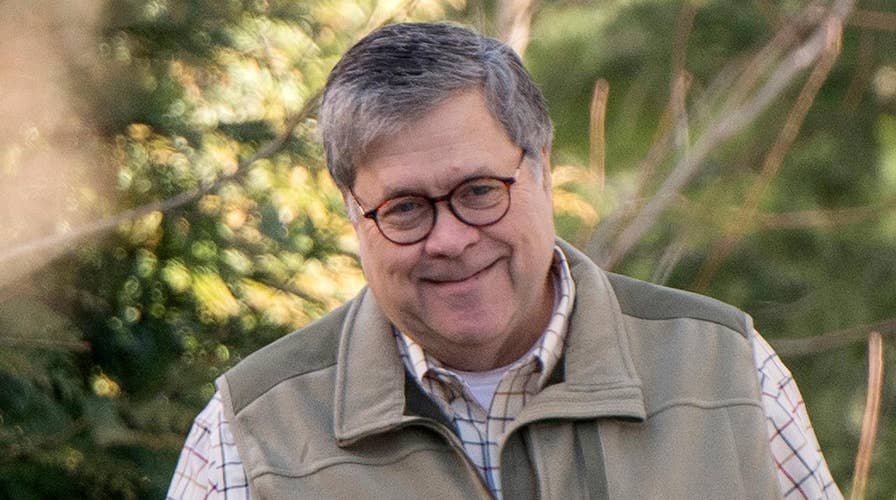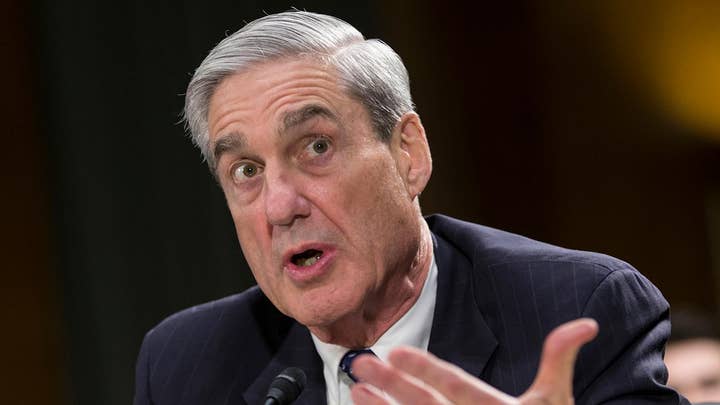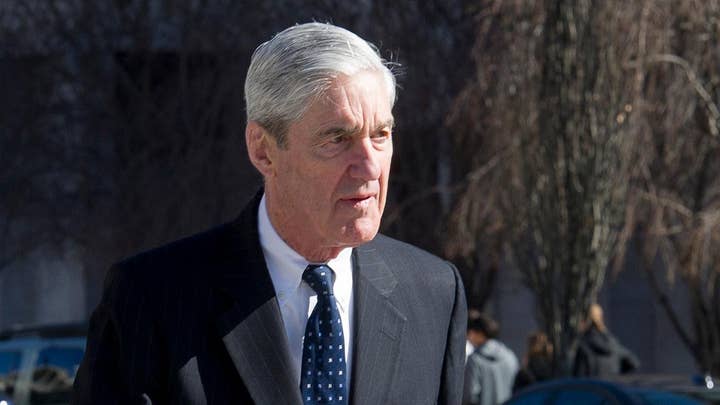In a letter released on Sunday, Attorney General William Barr released the "principal conclusions" of Special Counsel Robert Mueller's report on his investigation of President Trump, his 2016 campaign and allegations of collusion with Russia.
The four-page letter, addressed to top Democrats and Republicans on the House and Senate Judiciary Committees, offered key insight into the nearly two-year-long investigation, the results of which were submitted to the Justice Department on Friday.
READ THE MUELLER REPORT FINDINGS
Probe does not find collusion between Trump campaign and Russia
Mueller's investigation "did not find that the Trump campaign, or anyone associated with it, conspired or coordinated" with Russians who worked on those hacking efforts "despite multiple offers from Russian-affiliated individuals to assist the Trump campaign," Barr detailed in his letter.
Insufficient evidence for Trump obstructing justice
The attorney general said that the special counsel conducted a "thorough factual investigation" into whether Trump possibly obstructed justice. Mueller's office, however, "determined not to make a traditional prosecutorial judgment."
The special counsel "did not draw a conclusion" as to what constituted obstruction of justice, according to Barr's letter.
WHO'S BEEN CHARGED BY MUELLER IN THE RUSSIA PROBE?
Mueller "recognized" that the lack of evidence that Trump was involved in collusion would undercut any obstruction case — which would depend on showing a corrupt intent by the president. The investigation stated that "while this report does not conclude that the President committed a crime, it also does not exonerate him."
Mueller's office handed over the responsibility of determining "whether the conduct described in the report constitutes a crime" to the attorney general's office.
Russian efforts to influence election
The investigation found that "there were two main Russian efforts to influence the 2016 election," Barr's letter stated. The attempts stemmed from a Russian organization and the Russian government.
The first attempt to interfere in the election was by the Russian group, the Internet Research Agency (IRA), "to conduct disinformation and social media operations in the United States designed to sow social discord, eventually with the aim of interfering with the election."
In addition, the special counsel's office found that the Russian government tried to "conduct computer hacking operations designed to gather and disseminate information to influence the election."
Investigators determined that "Russian government actors successfully hacked into computers and obtained emails from persons affiliated with the Clinton campaign and Democratic Party organizations, and publicly disseminated those materials through various intermediaries, including WikiLeaks."
In total, 26 Russian nationals and three Russian companies have been charged in connection to the investigation.
Mueller referred "other ongoing matters" to other federal offices
Barr said that the special counsel's office referred "other ongoing matters" to "other offices" in Washington, D.C., "for further action," although Mueller did not recommend further indictments. Barr added that the timeline for processing the report "depends in part on how quickly the Department can identify" information that can't be released to the public legally, before he determines what can go public.
Thousands of subpoenas issued during investigation
Mueller's office "issued more than 2,800 subpoenas" and executed nearly 500 search warrants throughout the duration of the investigation, which lasted close to two years.
The office also "obtained more than 230 orders for communication records, issued almost 50 orders authorizing use of pen registers, made 13 requests to foreign governments for evidence, and interviewed approximately 500 witnesses" during the probe.















































